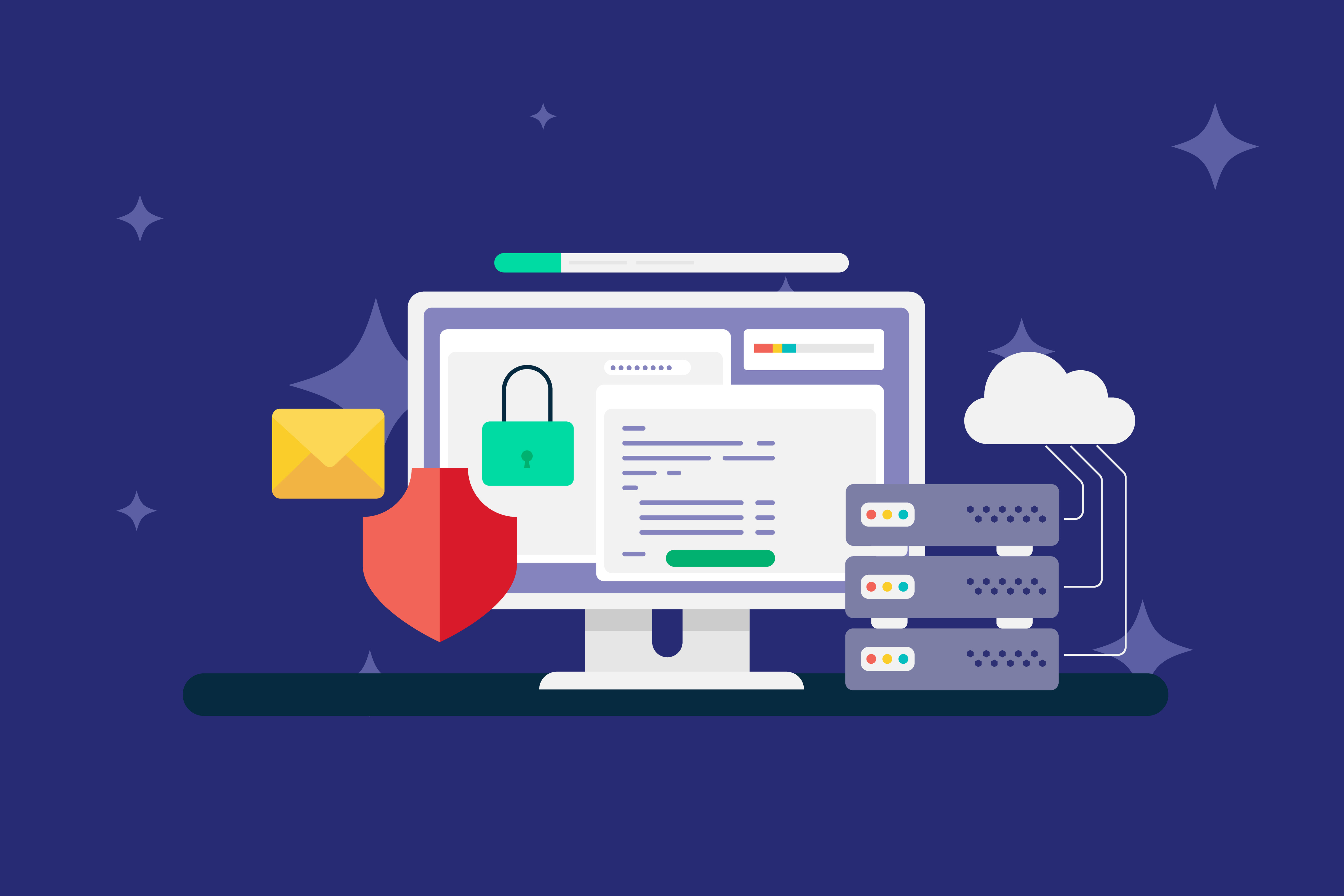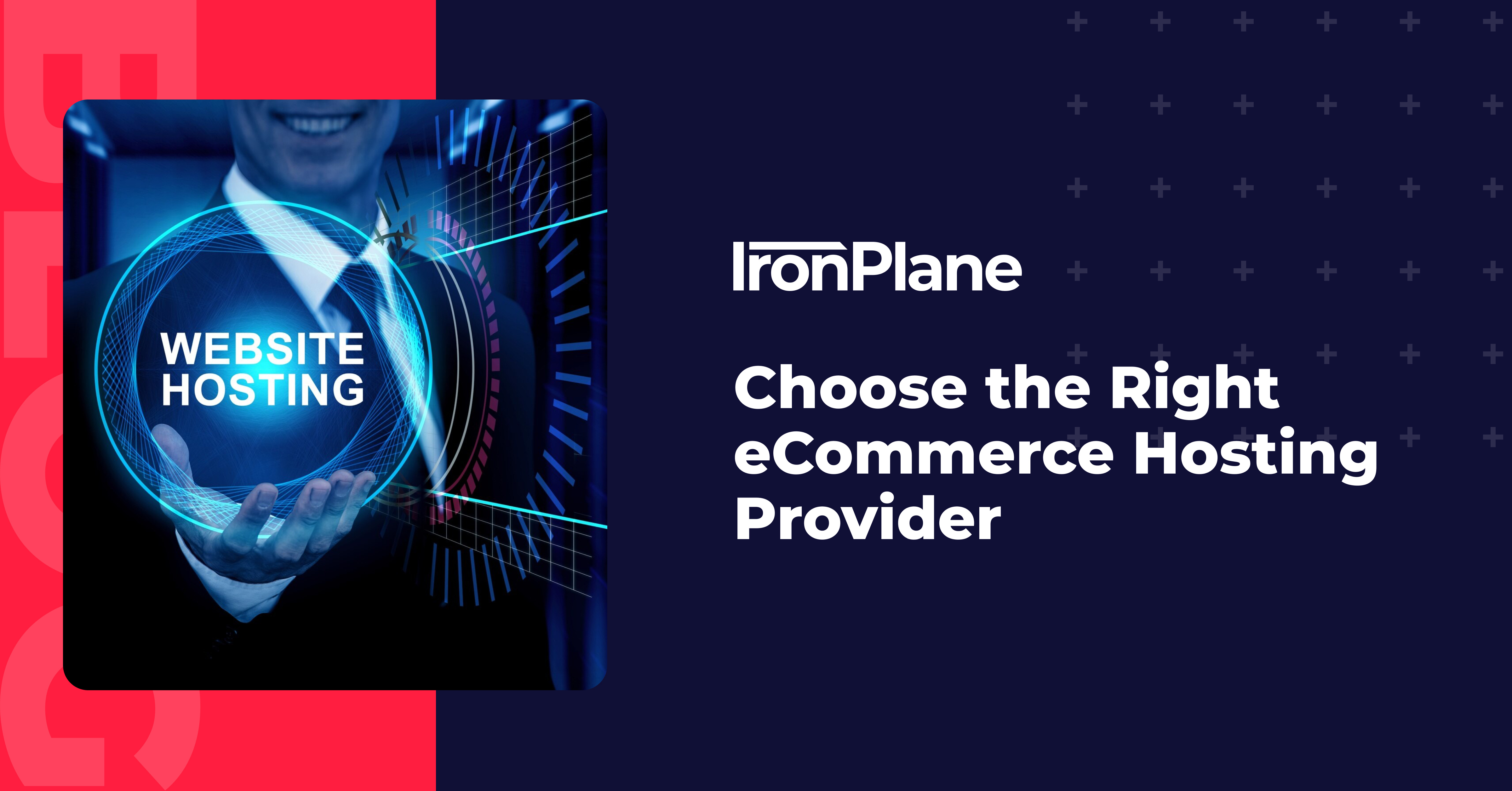Magento 2 Hosting: What You Need to Know
What you need to know about Magento 2 hosting. Options for E-commerce companies. Iron Plane Magento Blog.

Choosing the right eCommerce hosting is crucial for the success of your venture. From performance to security, there are numerous factors to consider to ensure a seamless shopping experience for your customers. In this article, we'll explore the biggest mistakes in eCommerce hosting and provide valuable insights on how to avoid them.
Before delving into the pitfalls and best practices, let's understand the essence of eCommerce hosting. eCommerce hosting is when a hosting provider brings a digital commerce website to end customers with specialized solutions. Unlike standard web hosting, eCommerce hosting prioritizes features essential for running an online store seamlessly, including payment processing, shipping, tracking, and more.
From handling high traffic volumes to ensuring robust security for sensitive customer data, eCommerce hosting plays a pivotal role in the success of an online venture. It encompasses a range of services and technologies designed to optimize the performance, security, and scalability of eCommerce websites.
There are also multiple hosting types, including:
Related: Click here for more information on Magento 2 hosting solutions
Three major pillars to consider when it comes to eCommerce hosting are performance, security, and scalability. When there are issues in these areas, they can negatively affect your site on a massive scale. Here are some common mistakes we see — as well as how you and your hosting provider can address them.
Slow-loading websites can drive away potential customers — nearly 70% of consumers admit that page speed influences their likeliness to buy. Slow-loading websites not only frustrate potential customers but can also negatively impact your search engine rankings. To avoid this pitfall, it's imperative to invest in hosting providers that prioritize performance and offer robust infrastructure, content delivery networks (CDNs), and scalable resources to ensure optimal performance.
In particular, you can distribute your website's static content globally, reducing latency and ensuring optimal load times. Regularly monitor performance metrics and optimize your site for speed to create a responsive shopping experience that keeps customers engaged.
In an era where cyber threats are prevalent, failing to prioritize security can lead to catastrophic consequences for your online store. Security breaches not only compromise sensitive customer data, but also erode trust and credibility. To fortify your defenses, choose hosting providers with a strong emphasis on security features.
Ensure your website is protected with SSL certificates, encrypting data during transit between users and your server. Regular security audits are essential to identify and patch vulnerabilities promptly. Implement secure payment gateways to protect financial transactions. By addressing security from the outset, you not only safeguard your customers' information but also bolster the reputation of your eCommerce business.
As your business expands, so will the demands on your website. Failing to anticipate this growth can result in downtime, slow loading times, and a poor user experience. Instead, choose an eCommerce hosting solution that prioritizes scalability, allowing you to adapt resources seamlessly as your traffic and product catalog grow.
Opt for providers offering flexible plans that can accommodate your evolving needs. Regularly assess your website's performance and traffic patterns to proactively plan for scalability requirements. Investing in scalable hosting ensures that your online store remains responsive and reliable, even during periods of heightened demand.
Now that we've highlighted common mistakes, let's discuss how to choose the right eCommerce hosting solution for your business.
Resist the urge to rush into a decision; instead, take the time to evaluate different hosting options. Consider crucial factors such as pricing plans, features offered, customer support responsiveness, and user reviews.
Look for hosting providers with a track record of reliability and positive customer experiences. Additionally, explore the scalability options each provider offers to ensure that your hosting solution can grow with your eCommerce business.
Before committing to an eCommerce hosting plan, make sure you have a deep understanding of your website's specific requirements. Analyze expected traffic volume, storage needs, and anticipated growth. These parameters can help you pinpoint the hosting features and resources necessary for your eCommerce business.
For instance, high-traffic websites may benefit from CDNs, while expansive product catalogs might require scalable storage solutions. This information serves as a guiding compass, allowing you to select a hosting plan that not only meets your current needs but is also equipped to handle future expansion seamlessly. Your chosen eCommerce hosting provider should be a strategic partner in your growth journey, adapting to the evolving demands of your platform.
For those seeking a streamlined and hassle-free hosting experience, managed hosting is a strong option. Managed hosting providers take on the responsibility of handling technical aspects — such as server maintenance, security updates, and regular backups. This allows you to focus on your core business activities without getting bogged down by the intricacies of server management.
Consider managed hosting if you prioritize efficiency and want to offload the technical burden to experts. While it may involve a higher cost, the time and effort saved can be invaluable, especially for smaller eCommerce businesses with limited resources.
When it comes to eCommerce stores, the Magento platform is a popular choice. However, Magento solutions have specific hosting requirements that require some extra attention. Here are some key considerations to keep in mind for optimal Magento 2 performance:
For an in-depth guide on Magento 2 requirements, explore our comprehensive guide to Magento 2 requirements. Adobe also offers a handy reference — the Magento Server Readiness Check — to assess your server's compatibility. This page can guide you through examining PHP settings, extensions, and other server configurations to ensure your system meets Adobe’s standards.
While hosting providers often offer Magento-compatible plans, it's crucial to choose a solution that aligns with your specific business needs. The key is to find a hosting solution that suits your business requirements, whether it's shared hosting, dedicated servers, or cloud-based hosting. Evaluate factors like performance, support, and scalability to make an informed decision.
To that end, IronPlane is here to help with your Magento hosting strategy. Our managed Magento hosting services are customized for your needs, and include services such as proactive scaling and 24/7 monitoring and emergency support. Learn more about our Magento hosting services.
Meeting Magento 2 hosting requirements is the foundation for a successful eCommerce venture. Take the time to assess your current setup, explore your hosting options, and choose the right solution to ensure your Magento 2 store remains running smoothly.

What you need to know about Magento 2 hosting. Options for E-commerce companies. Iron Plane Magento Blog.

The global web hosting services market is projected to grow at a compound annual growth rate (CAGR) of 18% from 2020 to 2027, reaching an estimated $321.5 billion by 2025.

Make sure you meet all Magento 2 requirements in this comprehensive guide from our team of Magento experts.